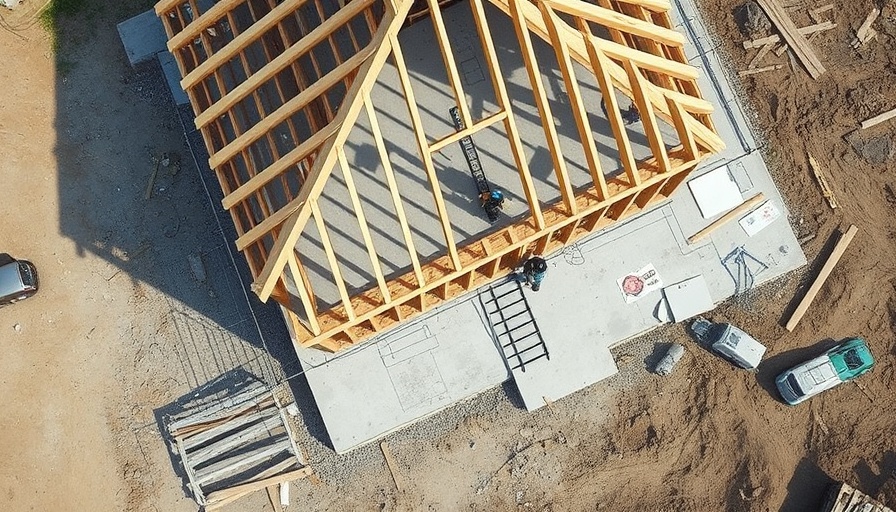
The Hidden Costs of Tariffs in the DFW Housing Market
In recent months, new tariffs have been levied on various materials crucial for home construction, which has plunged the Dallas-Fort Worth (DFW) area into a housing crisis exacerbated by rising costs. These tariffs, particularly on steel and aluminum, have not only inflated the prices of new homes but also strained the already precarious affordability landscape of the region.
Understanding the Tariff Impact
Experts estimate that tariffs are adding as much as $30,000 to the price of a new home in North Texas. This staggering figure has implications far beyond just the immediate financial burden on potential homeowners. With the DFW housing market already grappling with low inventory and high demand, these added costs are pushing homeownership further out of reach for many, particularly first-time buyers and families looking to settle down.
Long-Term Trends: Rising Costs and Stagnant Wages
The phenomenon of rising housing costs mirrors national trends, as many areas across the country face similar challenges. In DFW, where the economy is booming with strong job growth driven by tech startups, financial services, and corporate headquarters, wages have not kept pace with escalating home prices. As income levels stagnate while home costs rise, the gap continues to widen, contributing to a growing affordability crisis.
Future Predictions: How Tariffs Shape DFW’s Real Estate Market
Looking ahead, the implications of these tariffs may lead to changes in the housing market dynamics. Analysts predict that continued tariff pressures, compounded with the anticipated rise in interest rates, could slow down housing demand in the region. Customers might become more hesitant to buy, leading to a stabilizing or even declining market, which could be shocking in a region previously characterized by rapid growth.
Political Repercussions and Public Sentiment
As the effects of tariffs trickle down to the everyday citizen, there is rising concern among homeowners and potential buyers alike. Many Texans are looking towards policymakers to advocate for solutions aimed at controlling housing costs and mitigating the adverse effects of tariffs. Public sentiment increasingly reflects frustration over the perceived disconnect between government policies and the realities on the ground.
Practical Strategies for Homebuyers
For those actively searching for homes amidst this chaotic landscape, strategic planning is vital. Prospective buyers are encouraged to keep abreast of trends in the housing market, monitor interests rates, and work closely with real estate professionals. Additionally, exploring alternative financing options, such as first-time buyer assistance programs, may ease financial burdens.
A Call to Action: Navigating the Housing Squeeze
While the current state of the DFW housing market may appear daunting, understanding the factors at play empowers buyers. It’s essential to remain informed and connected to the community's larger conversations regarding economic development and housing issues. By doing so, potential homeowners can navigate the complexities of the housing market armed with knowledge.
Staying updated on these developments not only prepares homebuyers but also strengthens the community's overall resilience in the face of ongoing economic challenges. Engaging with local chambers of commerce and attending housing forums can also play a crucial role in advocating for potential reforms that alleviate current pressures.
 Add Element
Add Element  Add Row
Add Row 



Write A Comment